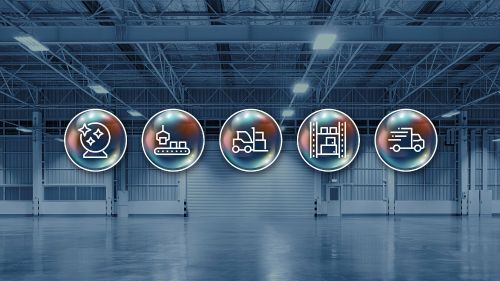Moving beyond the crisis in the automotive sector: The science of numbers in the supply chain
The automotive industry is fully aware of the challenges it faces. The standard players in the industry, from suppliers to producers and dealers, are working on new, alternative and transparent solutions so that they are not left behind by the current global revolution.
The globalization of the automotive market combined with ever increasing demand have fueled a transition from a collection of national companies to a globally integrated reality. The automotive and components industry is one of the most innovative sectors in the world, and one in which the supply and logistics requirements are particularly complex. As a matter of fact, every single hour is critical to avoiding production downtimes, even more so than in other sectors, and every process and supply link must be transparent and error free. The sector is cutting edge and dynamic, and one where innovation should come standard. Production logistics are aimed at guaranteeing an optimal, regular flow of materials from the raw materials warehouse to the production area. One particularly difficult challenge is understanding and forecasting demand and responding to variations in demand efficiently and effectively. But one must also consider that demand is very low for some parts; these tend to be expensive and not readily available, meaning that they are very difficult to manage and require large investments to keep in stock.
The importance of the supply chain became all the more evident in 2020. In the automotive sector, not only were there problems related to a drop in sales, but there were also structural problems resulting from the need to re-plan production. Some plants temporarily changed and re-directed their production of electronic parts and re-organized their production of semi-conductors and chips so that they could meet the current demands of the market, focusing on components for laptops, tablets and mobile phones. When the automotive market got back up and running, manufacturers started to re-allocate orders, but they were faced with an extremely complex situation, where suppliers weren’t able to respond to demands in the time frames required. This posed a huge problem that ground entire production chains at various companies to a halt.
Companies in the automotive sector should focus on improving their ability to process the data they have: the time frames for supply should be transparent. In times of “revolution,” it is of the utmost importance to react to changes along the entire supply chain. Reliable forecasting is always directly proportional to the quantity and quality of the data used. Accurately forecasting the demand for materials makes it possible to plan production and supply processes correctly, helping companies make strategic make-or-buy decisions and analyze different kinds of suppliers.
By implementing GIB Suite in SAP systems, it is possible to correctly manage the flow of information along the entire supply chain with a view to eliminating inefficiencies from a lack of coordination or the inability to manage temporary changes. The software uses a combination of methods ranging from traditional forecasting based on historical time series, to real-time machine learning of critical issues. This approach makes it possible to obtain forecasts which are both extremely precise and highly reliable, not to mention useful for both short-term and long-term planning.


